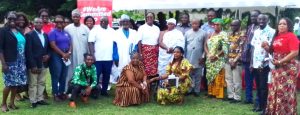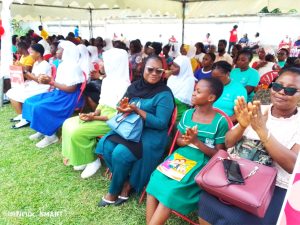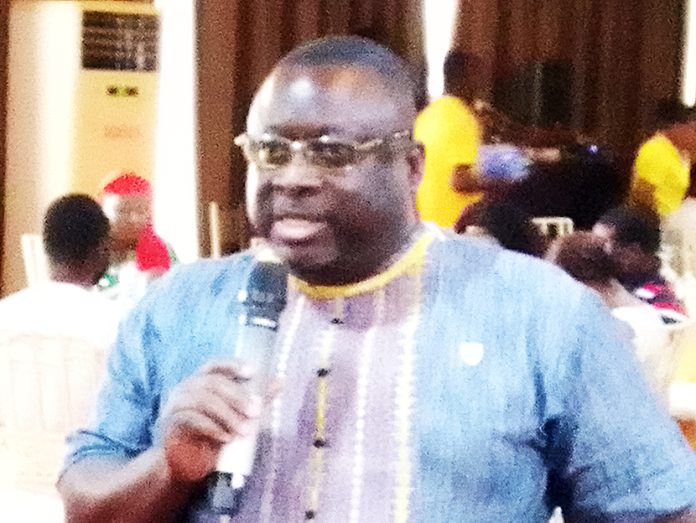Engineer George Asiedu, the Coordinator of Greater Accra Metropolitan Area (GAMA) Sanitation Project, has expressed the commitment of the project to the plight of the Menstruating Girl Child.

According to him, the sanitation, water, hygiene and capacity building components of the project are mostly designed for people living in low-income communities and households to address the needs of the weak in society.
Speaking at the commemoration of 2024 Menstrual Hygiene Day celebration at the Garden City Special School in the Asokore Mampong Municipality, in the Ashanti region, Ing. Asiedu stated that they usually look beyond income levels and consider differently abled persons, especially in their construction designs.
He disclosed that, over the past seven years, the GAMA Sanitation and Water Project, which is strongly supported by the World Bank has provided 598 modern toilets in schools in the Greater Accra and Ashanti Regions to demonstrate its commitment to the plight of the menstruating girl child.
He stressed the fact that it is compulsory to designate a special changing room for them to safely manage their period with privacy and in dignity while every school toilet provided by the project has special chambers and access paths for people who are less able to walk.
The GAMA Sanitation and Water Project believes that every female person is bound to menstruate every month for close to 40 years of their life and that, menstruation, when properly managed, does not have to limit any girl or any woman or any differently abled female, from making a meaningful contribution to society and humanity as a whole.

Ing. Asiedu observed that, in that regard, through their capacity building team, they have been working with experts to train many Municipal Assembly and other professionals on how best to reach out to menstruating girls with every possible support through awareness creation, skills development and direct provision of menstrual hygiene materials to girls.
He said over the past two years, the project has facilitated the production and distribution of menstrual awareness materials for girls, including those who are visually impaired and also working with other stakeholders to set up a Pad Bank, where philanthropists and institutions can voluntarily donate pads to support children whose parents are unable to provide them with enough menstrual pads during their period.
Dr. Josephine Kyei, Senior Lecturer, School of Nursing and Midwifery, University of Ghana, as the Guest speaker, stated that individuals who are differently abled face challenges when it comes to menstrual hygiene.
She urged the general public, especially men, parents and teachers to understand the challenges of the girl child by providing support in infrastructure and accessibilities in schools, workplace and wherever they find themselves.
According to her, there is the need to continue with education and awareness and advocate for policies that mandate inclusive and accessible menstrual health facilities.
She also advocated for government bodies, Non Governmental Organisations (NGOs) and Community Organisations to work together to create guidelines and frameworks that would support the course.








